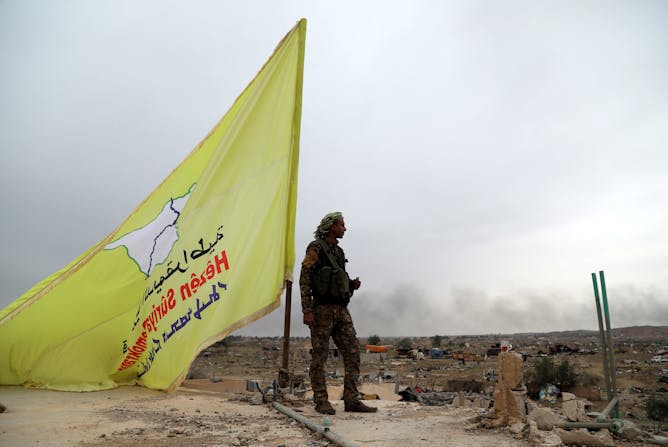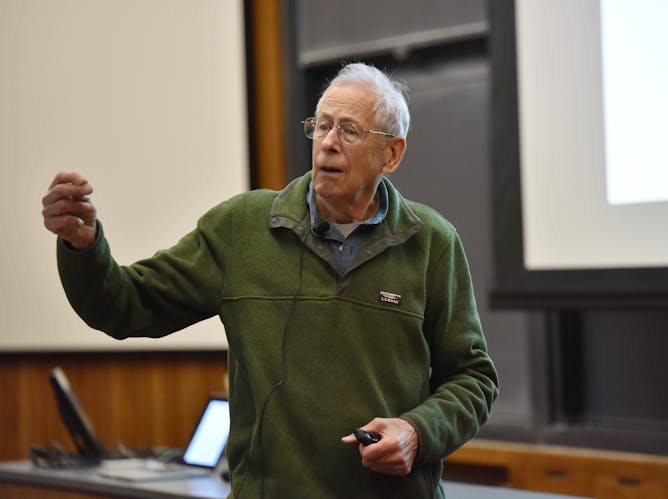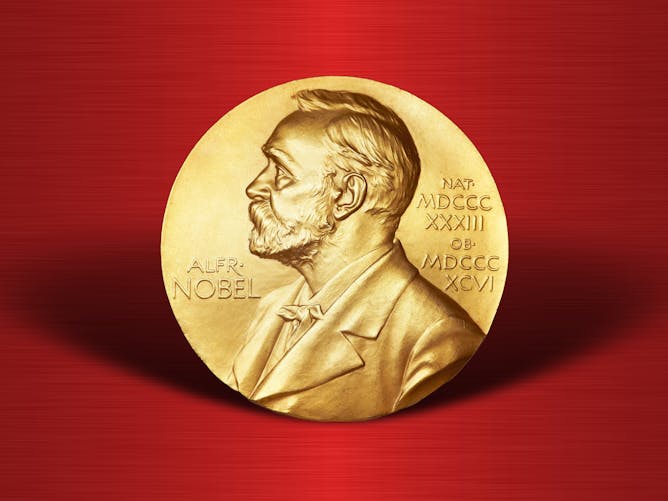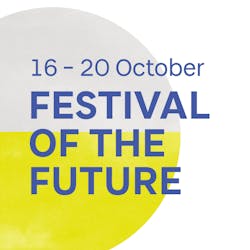|
|
|
Editor's note
|
|
As soon as reports emerged of a Sunday afternoon phone call between US President Donald Trump and his Turkish counterpart Recep Tayyip Erdoğan, officials in the Pentagon scrambled to minimise the damage. Trump’s decision to withdraw some US troops back from the Turkish-Syrian border, effectively allowing Turkey to go ahead with a military incursion into northern Syria, caused widespread alarm. The Kurdish-led Syrian Democratic Forces who currently control the area, and were a key ally of the US in the battle to defeat Islamic State, called Trump’s move a “stab in the back”.
For Ali Bilgic, it’s a deeply destabilising moment. He writes that the Kurdish region in northern Syria, also known as Rojova, has been one of the most stable in the country throughout the Syrian war. It could find itself under attack on two fronts, by Turkey and by the forces of Bashar al Assad. Still another possibility is that the Kurds could ally with the Assad regime against the “foreign invaders”. Meanwhile, Russia, a staunch ally of
Assad, is watching closely.
The Nobel Prizes are being announced this week. We have an explainer on the science that won this year’s prize for physiology or medicine: the discovery of how cells sense oxygen levels. And read about one of the true greats of cosmology, who was yesterday revealed to have shared the prize for physics. Stay tuned for reaction to the other Nobel announcements. And with millions of us suffering from high blood pressure – here’s how to interpret your readings.
|
Gemma Ware
Global Affairs Editor
|

|
|
Top stories
|

A fighter from the Syrian Democratic Forces in Baghuz, Syria in March 2019.
Ahmed Mardnli/EPA
Ali Bilgic, Loughborough University
Why the US decision to withdraw troops from northern Syria is so dangerous.
|

Princeton University/EPA
James Geach, University of Hertfordshire
The Princeton cosmologist helped pioneer our current model of the universe and began a whole new branch of physics.
|

Alfred Nobel made his fortune through the invention of dynamite.
Paramonov Alexander/Shutterstock.com
Sadeesh K. Ramakrishnan, University of Pittsburgh
Oxygen is vital for life, so much so that cells can sense when there isn't enough and adapt almost instantly. So how do they do it? The winners of the 2019 Nobel Prize for Physiology figured it out.
|

Taking a reading.
Andrey_Popov/Shutterstock
Sandra Jones, University of Hull; Matthew Lancaster, University of Leeds
How to interpret the readings to tell if you have high blood pressure.
|
Health + Medicine
|
-
Kevin McConway, The Open University
John Carlisle's method for spotting potentially fraudulent figures has already been adopted by two top medical journals.
-
Dawn Liu, University of Essex
Shoppers struggle to make sense of food labels – and aren't always sure what they're eating.
-
Mari Greenfield, University of Hull
For lesbian couples or trans men, the 'unexpected' gender of one parent causes difficulties for maternity services where notions of 'normal' are increasingly out of step with the times.
-
Stephen Rocks, University of Oxford; Apostolos Tsiachristas, University of Oxford
New research uncovers the reasons for the chronic underspending on young people's mental health services.
|
|
Environment + Energy
|
-
David Reiner, Cambridge Judge Business School; Ilkka Hannula, University of Cambridge
We can't decarbonise the whole transport sector with just batteries - sustainable fuels are essential.
-
Matt Perry, Newcastle University
A good life for workers and a healthy natural environment aren't mutually exclusive.
|
|
Business + Economy
|
-
Wim Naudé, United Nations University
Contrary to popular belief, entrepreneurship has been on a worryingly downward trend since the 1980s – here's why.
|
|
Arts + Culture
|
-
Maria Flood, Keele University
We don't want to have to think about our role in creating the individuals who commit violence. Amazingly, Joker asks us to.
|
|
Cities
|
-
Tola Amodu, University of East Anglia
Stereotypes that paint landlords as "bad" and tenants as "good", and pit the two groups against each other, are actually holding back progress.
|
|
| |
| |
| |
| |

|
| |
| |
| |
Featured events
|

|
Bonar Hall University of Dundee, Dundee, Dundee City, DD1 4HN, United Kingdom of Great Britain and Northern Ireland — The Conversation
|

|
Bonar Hall University of Dundee, Dundee, Dundee City, DD1 4HN, United Kingdom of Great Britain and Northern Ireland — The Conversation
|

|
G10, Palmer Building, Whiteknights Campus, University of Reading, Reading, West Berkshire, RG6 6UA, United Kingdom of Great Britain and Northern Ireland — University of Reading
|

|
East Road, Cambridge, Cambridgeshire, CB11PT, United Kingdom of Great Britain and Northern Ireland — Anglia Ruskin University
|
|
|
|
| |
| |
| |
| |
| |
|
|
|
|
|
|
|